Symbolic politics at the borders: panel discussion on the effectiveness of German-Polish border controls
The almost desperate helplessness caused by the border controls at the German-Polish border became clear on the evening of 17 July 2025 in the Viadrina Senate Hall when questions from the audience came to the podium. The panel, consisting of Dr Marcus Engler and Lea Christinck (both from the German Centre for Integration and Migration Research, DeZIM) as well as Viadrina researchers Dr Norbert Cyrus, Prof. Dr Claudia M. Hofmann and Dr Anja Hennig, were unanimous in their assessment. From various perspectives - whether statistical, economic, legal, humanitarian or political - they came to the conclusion that these border controls are wrong.
Border controls mean major cuts on both sides of the German-Polish border, says Dr Marcus Engler. One can therefore assume that the application of these controls was preceded by a "careful consideration process". However, the research shows this: This is not the case, either before or during the measure. Engler emphasised how thin the database is for measuring whether border controls have an effect to irregular migration.
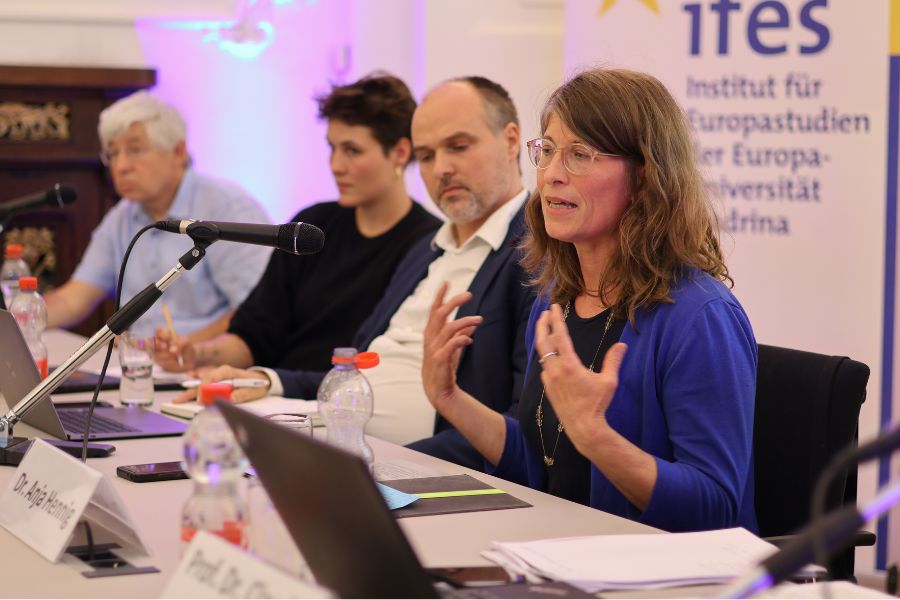
In the front: Dr Anja Hennig, research assistant at the Professorship of Comparative Politics. Photo: Valeria Lazareva
Dr Norbert Cyrus from the Viadrina Center B/ORDERS IN MOTION reported that there have been two or three research projects in the past that looked at the effects of border closures, such as whether setting up walls and fences would be an appropriate measure. "There is little to no demonstrable effect," says the scientist. The border policy between the USA and Mexico has been scientifically monitored since 1986 - the conclusion there is also: "Irregular immigration could not be limited". However, there are large measurable effects on the economy and society that were not intended.
Simulated ability to act
"It's simply not a good idea," summarises Marcus Engler. In recent years, the political parties of the centre have adopted many of the restrictive elements demanded by the far right into their own policies. First, a "radicalisation of the CDU/CSU" took place in the migration debate. Later, the previously progressive Ampel coalition also adopted instruments such as the introduction of the payment card for asylum seekers. According to his observations, all of this was done in order to gather more votes from the right wing. Ultimately, however, all of this only reflects a simulated ability to act - in Berlin as well as in Warsaw. Lea Christinck used statistical analyses to illustrate that the numbers of migrants, whether regular as asylum seekers or irregular with the help of smugglers, are seasonal. There are complex causes that influence migration movements. Border controls cannot demonstrably influence these.
Picture gallery
Dr Anja Hennig, research associate at the Professorship of Comparative Politics, categorised the current border controls between Poland and Germany. "There is a certain analogy in both countries, as both governments are under extreme pressure from the right," said the researcher. The unilateral controls introduced by Germany and Poland's reaction to counter this with its own border controls are highly symbolic. On the one hand, they catch on and convince many people who believe in them. On the other hand, Hennig said: "They are causing great damage to coexistence in the border region."
Prof. Dr Claudia M. Hofmann, Viadrina Professor of Public Law and European Social Law, emphasised the negative effects. Not only is the advertising for the twin city of Frankfurt (Oder)-Słubice with its motto "Travelling without borders" being reduced to absurdity, but the entire European project is in danger. The European Union is based on the promise of being able to cross internal borders freely in order to experience Europe together. The rule of law and democracy would also suffer under the current policy. "According to EU law, border controls within Schengen should remain the ultima ratio, i.e. the last resort," said the lawyer, referring to current law. She believes that the current controls lack proportionality, practicality and justification. "Is there a new threat situation? Is there a risk of mass immigration?" she asked. The same applies to the rejection of potential asylum seekers at the border: if even the Federal Minister of the Interior is not complying with the law, which was recently confirmed by the Berlin Administrative Court in May 2025, where is this leading? "Are we on the way to a dystopia?" asked Hofmann.
We need to return to evidence-based policy.
Dr Anja Hennig
This fear was also reflected in the questions from the audience. Visitors ultimately wanted to know from the experts on the podium: What should migrants, administrative staff, politicians, students, researchers - in short, citizens - do? "I would like people to believe in the rights of the European Union and speak with a united voice," said Hofmann. Perseverance and a high tolerance for frustration are two qualities that are important now.
Illiberal politics and toxic polarisation
Engler pointed out that there are also discussions within the parties about which path is the right one. Despite the lack of evidence that border controls made sense, politicians would continue to pursue them - which he found puzzling. "Of course, awareness is greater in the border regions," he said. But perhaps this is also an approach to fight back: a coalition of the affected border towns in Germany. Hennig appealed for politicians to allow themselves to be driven less by the right wing. "We need to return to evidence-based politics," she demanded. Cyrus also criticised the illiberal policies and advised people to first understand what is happening. "There is a toxic polarisation, especially on social media," said the researcher. "Migration is not a problem in itself, it's a question of what you make of it," he concluded.
Around 120 visitors followed the presentation online and in person. The audience included representatives from politics, business and civil society: from the Brandenburg Ministry of Finance and Europe, the Chamber of Industry and Commerce and the Brandenburg Refugee Council. The event was simultaneously translated into English and Spanish.
The cooperation event organised by the Viadrina Center B/ORDERS IN MOTION, the European Reform University Alliance (ERUA) and the Viadrina Institute for European Studies (IFES) was moderated by Prof Dr Kira Kosnick (Viadrina Center B/ORDERS IN MOTION).
Translated by DeepL and edited
Back to the news portal
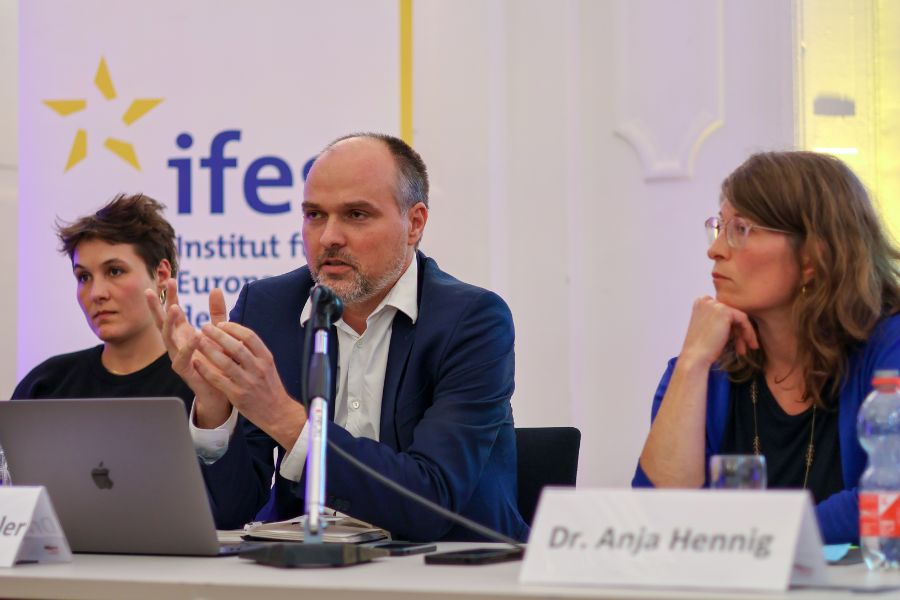
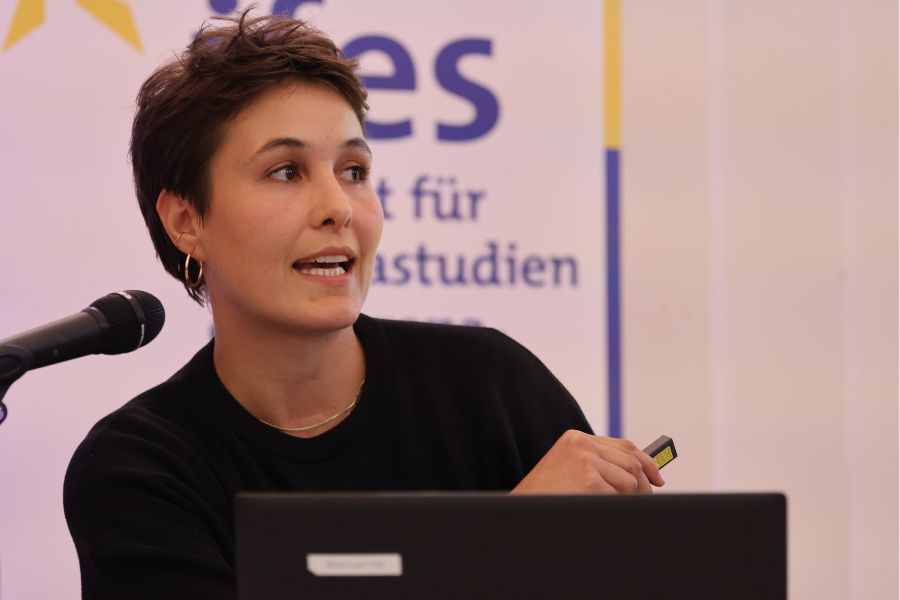
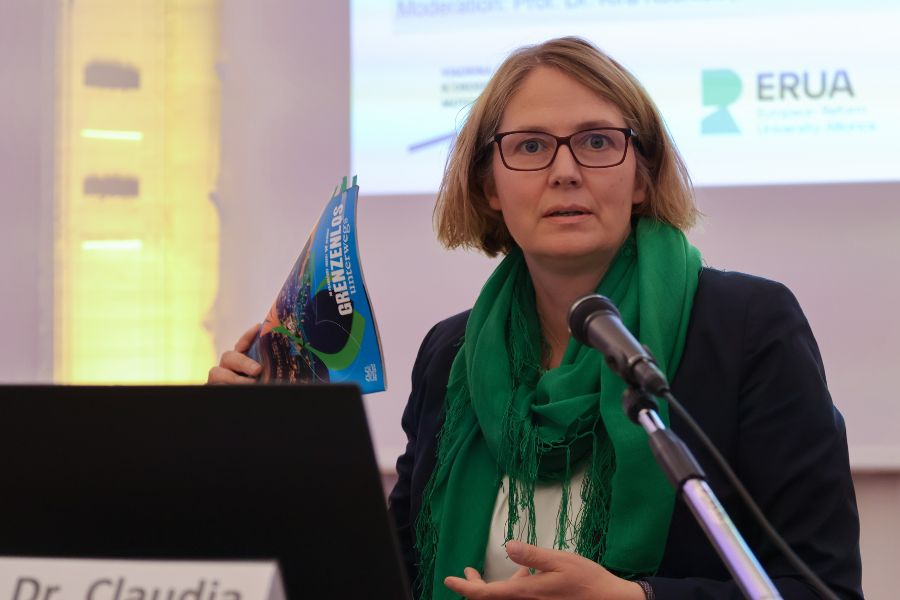
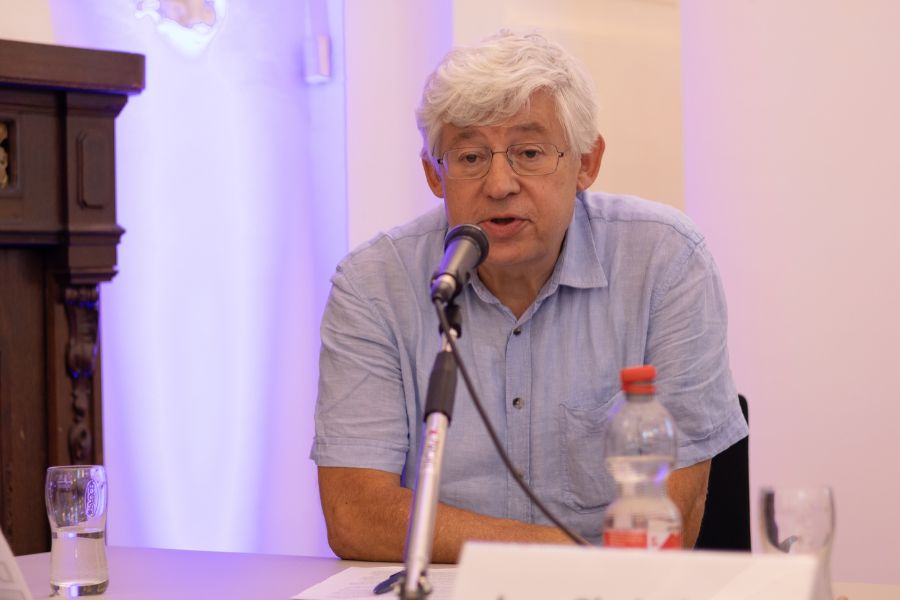
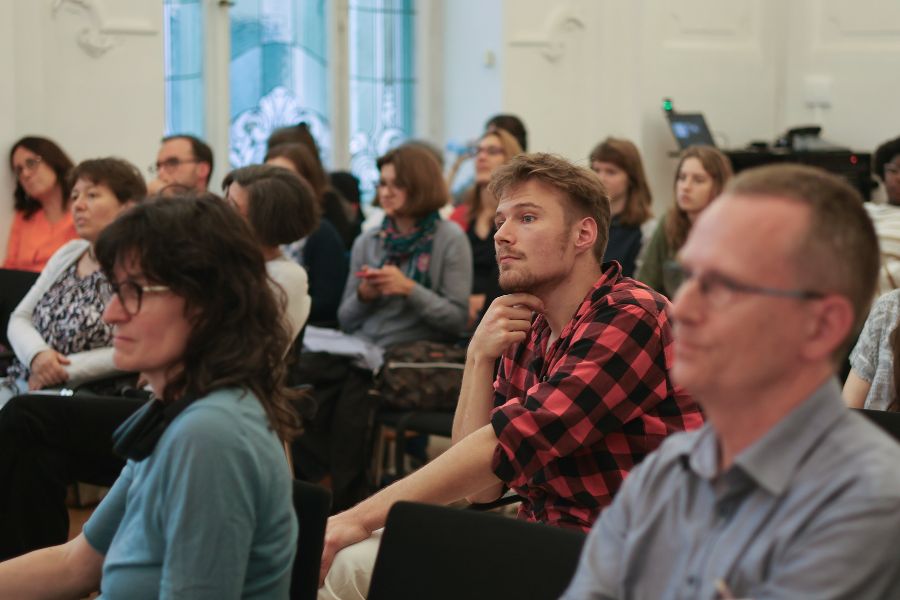
Share article: